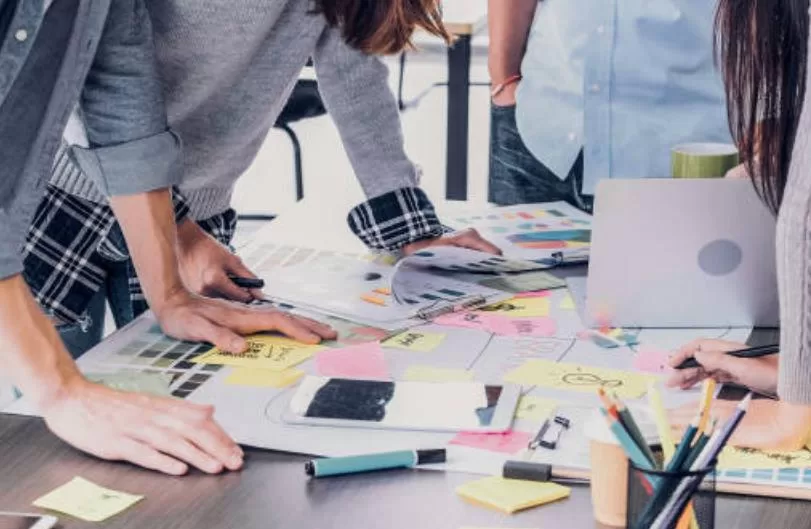How Can Visualization Be Used To Improve Problem-Solving Skills?
Learn what makes you feel good about yourself in order to succeed in life.

Selfpause Affirmation App
Download the app to get 1,000’s of affirmation meditations and everything you need to write, record and listen to your own.
Visualization is a powerful tool that can be used to improve problem-solving skills in a variety of ways. At its core, visualization is the process of creating mental images or pictures of information or ideas in order to better understand and remember them. By using visualization techniques, individuals can more effectively process and analyze complex information, make connections between seemingly unrelated pieces of information, and come up with new and innovative solutions to problems.

One of the most effective ways to use visualization to improve problem-solving skills is through the use of mind maps. Mind maps are visual diagrams that are used to organize and represent information in a hierarchical manner. They are particularly useful for breaking down complex problems into smaller, more manageable parts, and for identifying the relationships between different pieces of information. Mind maps can also be used to generate new ideas and to explore different possible solutions to a problem.
Another powerful visualization technique that can be used to improve problem-solving skills is concept mapping. Concept maps are diagrams that are used to represent the relationships between different concepts, ideas, or pieces of information. They are particularly useful for understanding the connections between different pieces of information, and for identifying patterns or themes that might not be immediately obvious. Concept maps can also be used to generate new ideas, and to explore different possible solutions to a problem.
Visualization can also be used to improve problem-solving skills by helping individuals to better understand and remember information. This can be done through the use of memory palaces, which are mental images that are used to organize and represent information in a memorable way. Memory palaces can be used to remember important dates, facts, or figures, and can be especially useful for those who struggle with memorization.
Another way to use visualization to improve problem-solving skills is through the use of visual metaphors. Visual metaphors are pictures or images that are used to represent a concept or idea in a way that is easy for people to understand. For example, a visual metaphor of a maze could be used to represent a complex problem that needs to be solved, while an image of a puzzle could be used to represent a problem that needs to be assembled piece by piece. By using visual metaphors, individuals can more easily understand and remember the problem they are trying to solve, and can come up with new and innovative solutions.

Visualization can also be used to improve problem-solving skills by helping individuals to think more creatively. For example, brainstorming sessions, where individuals come up with as many ideas as possible, can be made more effective by using visualization techniques. By creating visual representations of the ideas generated during brainstorming sessions, individuals can more easily identify patterns and connections between the ideas, and can come up with more creative and innovative solutions to the problem at hand.
Another way visualization can be used to improve problem-solving skills is through the use of simulations. Simulations are virtual models of real-world systems that can be used to test different scenarios and solutions. They are particularly useful for understanding complex systems and for identifying potential problems before they occur. By using visualization techniques, simulations can be made more effective and easier to understand.
Another way visualization can be used to improve problem-solving skills is through the use of flowcharts and process maps. Flowcharts are diagrams that are used to represent the steps in a process or the flow of information. They are particularly useful for understanding the relationships between different steps in a process, and for identifying potential bottlenecks or problems. Process maps can also be used to generate new ideas and to explore different possible solutions to a problem.
Visualization can also be used to improve problem-solving skills by helping individuals to better understand and analyze data. This can be done through the use of data visualization techniques such as bar charts, line graphs, and scatter plots. These techniques can be used to represent data in a clear and concise manner, and can be especially useful for identifying patterns or trends in large sets of data.

In conclusion, visualization is a powerful tool that can be used to improve problem-solving skills in a variety of ways. Whether through mind mapping, concept mapping, memory palaces, flowcharts, process maps, or data visualization techniques, visualization can help individuals to better process and analyze complex information, make connections between seemingly unrelated pieces of information, and come up with new and innovative solutions to problems. By incorporating visualization techniques into their problem-solving process, individuals can improve their ability to think creatively and critically, and to make more informed decisions.
